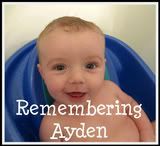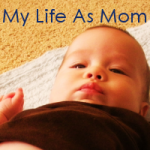Here is a list of foods you can't have while pregnant from WebMD:
- Swordfish, shark, tilefish, king mackerel, limit canned albacore tuna fish. These large fish harbor higher levels of methylymercury, a metal detrimental to a growing child's brain and nervous system. Pregnant and nursing women may safely eat up to 6 ounces of albacore ("white') tuna fish as part of their weekly total limit of 12 ounces of seafood low in mercury, says the U.S. Food and Drug Administration (FDA). This also includes salmon, shrimp, canned light tuna, pollock, and catfish.
- Fish caught in rivers, lakes, streams, or any other body of water. Recreational anglers may hook fish contaminated with bacteria or chemicals. Check the safety of fish from your favorite fishing grounds with your local health department.
- Raw or undercooked meat, poultry, seafood (like raw oysters, clams, sushi), and eggs (including eggs in cookie dough and cake batter). Undercooked animal foods may contain a variety of bacteria and viruses. Use a meat thermometer to determine doneness of meat and poultry, and cook eggs until they are no longer runny.
- Hot dogs and luncheon meats, including deli ham, turkey, bologna, and salami -- unless they have been reheated until steaming hot. These foods are prone to Listeria monocytogenes, a bacteria that causes listeriosis, which may result in miscarriage, stillbirth, or other serious health problems.
- Unpasteurized dairy foods, including some milk and certain cheeses, such as Brie, feta, Camembert, Roquefort, blue-veined, "queso blanco," "queso fresco," and Panela; refrigerated pates or meat spreads; and refrigerated smoked seafood, such as salmon, trout, whitefish, cod, tuna, or mackerel (most often labeled as "nova-style," "lox," "kippered," "smoked," or "jerky"). These foods may contain harmful levels of listeria bacteria. Refrigerated smoked seafood is safe when it's part of a cooked dish, like casseroles.
- Unpasteurized juices, such as cider purchased from roadside stands, at farms, or in stores. These products are prone to germs, including E. coli. Check the label to be sure juice is pasteurized.
- Raw vegetable sprouts, including alfalfa, clover, radish, and mung bean. The FDA says sprouts are not a good idea for anyone, never mind pregnant women who are more susceptible to the health effects of the germs sprouts possess.
- Herbal supplements and teas. Herbs are natural, but herbal products have not been studied enough to recommend them during pregnancy.
- Alcohol. Beer, wine, and spirits rob developing cells of oxygen, making normal development impossible. The effects of alcohol on intellectual prowess are irreparable. According to the March of Dimes, there is no known safe level for alcohol consumption in pregnancy.
- Tap water in undeveloped countries. Drink bottled water to avoid bacteria and viruses.
- Certain foods that cause food allergy. Depending on your family history, your child may be at risk for developing food allergies. Avoiding foods including peanuts and peanut products during pregnancy (and nursing) may reduce allergy risk in susceptible children. Before you make any changes to your diet, speak with a licensed health care professional about your child's risk for allergy and consult with a registered dietitian knowledgeable about food allergy.
So I knew most of these but I had no clue Deli Meat was out.. which stinks because I have been craving Roast Beef Sandwiches like no other.
Here are activities I have to avoid now from BabyCenter:
• Amusement park rides: Waterslides and other rides at amusement parks are a no-no, since a forceful landing or sudden start or stop could harm your baby.
• Bicycling: Cycling isn't a good idea for newbies, but experienced riders may be able to continue until their second trimester, when a shifting center of gravity affects balance and can make cycling dangerous.
• Contact sports: Soccer, basketball, and hockey put you at a high risk of injury from a ball or puck, a collision with another player, or a fall during play.
• Downhill skiing: ACOG advises against downhill skiing anytime during pregnancy because of the risk of serious injuries and hard falls. If you choose to ski, stick to gentle slopes and be aware that you may have problems with balance as your belly expands. A safer choice is cross-country skiing, which is also much better for building cardiovascular fitness. Avoid skiing at altitudes above 6,000 feet, where there's less oxygen for you and your baby.
• Gymnastics: Same risk of falling and increased chance of trauma to your abdomen.
• Horseback riding: Even if you're a good rider, it's not worth risking a fall.
• Post-sport tubs and saunas: Soaking in hot tubs and Jacuzzis or sitting in a sauna can be dangerous to your developing baby because overheating has been linked to birth defects.
• Running: If you weren't a runner before you got pregnant, now's not the time to take it up. Otherwise, it's fine in moderation. From your second trimester on, when the risk of falling increases, you should run with caution. As with all forms of exercise, avoid becoming overheated, and drink plenty of water to replace fluids lost through sweating.
• Scuba diving: This is an absolute no. As you surface, air bubbles can form in your bloodstream, which can be very dangerous for both you and your growing baby.
• Snowboarding: Same risk of falling and increased chance of trauma to your abdomen.
• Surfing: Same risk of falling and increased chance of trauma to your abdomen.
• Tennis: A moderately paced game of tennis is okay if you played before you became pregnant. But you may have problems with balance and sudden stops, so watch your step. Most women find that it's hard to keep up their game as their bellies get bigger in the second and third trimesters.
• Waterskiing: Another activity that puts you at risk for falling and increases the chance of trauma to your abdomen.
Good thing I don't plan on doing any of these activities any time soon.. how ever I never thought Tennis would be a bad thing.
Over-the-counter Medications I can take from BabyCenter:
| Problem | Safe to take |
| Heartburn, gas and bloating, upset stomach | Antacids for heartburn (Maalox, Mylanta, Rolaids, Tums) Simethicone for gas pains (Gas-X, Maalox Anti-Gas, Mylanta Gas, Mylicon) |
| Cough or cold | Guaifenesin, an expectorant (Hytuss, Mucinex, Naldecon Senior EX, Robitussin) Dextromethorphan, a cough suppressant (Benylin Adult, Robitussin Maximum Strength Cough, Scot-Tussin DM, Vicks 44 Cough Relief) Guaifenesin plus dextromethorphan (Benylin Expectorant, Robitussin DM, Vicks 44E) Cough drops Vicks VapoRub Avoid cold remedies that contain alcohol. Also avoid the decongestants pseudoephedrine and phenylephrine, which can affect blood flow to the placenta. |
| Pain relief, headache, and fever | Acetaminophen (Anacin Aspirin-Free, Tylenol) |
| Allergy relief | Chlorpheniramine, an antihistamine (Chlor-Trimeton allergy tablets) Loratadine, an antihistamine (Alavert, Claritin, Tavist ND, Triaminic Allerchews) Diphenhydramine, an antihistamine (Banophen, Benadryl, Diphenhist, Genahist) |
| Constipation, hemorrhoids, and diarrhea | Psyllium (Konsyl-D, Metamucil, Modane Bulk, Perdiem) Polycarbophil (Equalactin, Fiber-Lax, FiberNorm, Konsyl-Fiber, Mitrolan) Methylcellulose (Citrucel, Unifiber) Other laxatives and stool softeners (Colace, Dulcolax, Maltsupex, milk of magnesia) Hemorrhoid creams (Anusol, Preparation H, Tucks) Loperamide, anti-diarrhea medication (Imodium, Kaopectate II, Maalox Anti-Diarrheal, Pepto Diarrhea Control) |
| Yeast infections and other fungal infections such as athlete's foot | Clotrimazole (Cruex, Gyne-Lotrimin 3, Lotrimin AF, Mycelex 7) Miconazole (Desenex, Femizol-M, Micatin, Monistat 3) Terbinafine (Lamisil AT) Tioconazole (Monistat 1, Vagistat 1) Butoconazole (Femstat 3, Mycelex 3) Butenafine (Lotrimin Ultra) Tolnaftate (Absorbine Athlete's Foot Cream, Absorbine Footcare, Genaspor, Tinactin) Undecylenic Acid and derivatives (Cruex, Desenex, Fungi Cure, Tinacide) Certain Cruex, Desenex, and Fungi Cure products may contain other antifungal agents not listed here that should not be used during pregnancy. Check the labels carefully. |
| Insomnia | Diphenhydramine (Benadryl, Maximum Strength Unisom SleepGels, Nytol, Sominex) Doxylamine succinate (Unisom Nighttime Sleep-Aid) |
| First-aid preparations | Hydrocortisone (Cortaid, Lanacort), Polysporin |
NOTE: We've listed a few brand names as examples for each type of medication, but there are many more on the market. Be sure to check the label of every medication you consider taking to see what it contains.
I am not much of a Medicine taker but its nice to know what I can take since I thought all I was able to take was Tylenol.
Enviroments to Avoid from eHow:
*Cigarette Smoke. If you smoke, stop. Ask others not to smoke around you. Inhaling passive smoke is almost as harmful as smoking yourself.
* Lead: Stay away from lead paint, especially if repair work is being done or the paint is chipping off. You should be concerned if your house was built before 1978. Most companies stopped putting lead in paint in 1955, and the federal government banned lead in paint in 1978.
Make sure the tap water you drink is lead free. Check with your local environmental group or the Environmental Protection Agency (EPA). If you suspect that the water may not be safe, get it tested for lead and contaminants by the EPA or get more information from the Health Department. Use only cold water for drinking and cooking. If your plumbing is very old or contains lead, consider changing it. Always run the tap for a few minutes before filling your glass, especially if the tap has not been used for a few hours.
* Manufacturing agents and chemicals: Those working in manufacturing or on a factory floor should avoid certain things when pregnant, as specified by the Occupational Safety and Health Administration. These include chemicals like alkylating agents, arsenic, benzene, carbon monoxide, chlorinated hydrocarbons, dimethyl sulfoxide, organic mercury compounds, lead, lithium, aluminum, ethylene oxide, dioxin and polychlorinated biphenyls.
* Cleaning agents and strong fumes: There is no proven link between household cleaners and pregnancy complications, but it is better to use these with extra caution when pregnant since they contain very strong chemicals and emit unpleasant odors. Use rubber gloves. Do not use toxic cleaners such as oven cleaners. Avoid inhaling the fumes directly by covering your nose while spraying. Make sure the rooms you clean are well ventilated.
* Continuous In-flight Radiation, especially at high altitudes, closer to the earth's poles: This is applicable to women working as pilots or flight crew members. It has been observed that those who often fly for long hours at very high altitudes, close to the poles are at a risk of exposure to solar radiation. Though the risk may be small, pregnant women are advised to avoid it.
* Mercury-rich Fish: Though fish is considered one of the healthiest types of foods, pregnant women should avoid seafood with high mercury content. Shark, swordfish, King mackerel, tile fish are especially to be avoided. Similarly, raw fish could contain bacteria and parasites and should be avoided.
*Microwave radiation: Although the benefits of the microwave far outweigh any risks it might pose, studies show that the fetus is especially vulnerable to being affected adversely. So, while you don't have to stop using the microwave, you should take some precautions while using it. Make sure the microwave has no leaks. Do not stand in front of the microwave or very close to it while it runs.
* Air Pollution: Avoid or reduce the inhalation of polluted air and exhaust fumes. Keep your rooms well-ventilated, especially the ones with fireplaces, burners or stoves.
* Paint fumes: Although lead based paints are no longer used, paint fumes are best avoided. Some paints have been shown to have unsafe amounts of mercury and other substances.
* Noise: Continuous exposure to loud noise has been known to cause miscarriages in animals. There is no study to prove a similar correlation in humans, but it is known that continuous exposure to loud noise causes hearing loss. So, to be on the safer side, pregnant women might want to avoid working in an environment that is too noisy all the time.
Some of these things make me feel like I should lock myself in my house LOL others are understandable I just wish people who are not pregnant could understand.
Helpful ways to have a stress free healthy pregnancy from Women's Health Care Topic's:
- Eat a healthy, well balanced diet. Eating well will provide you the energy you need to get through the day, especially when you feel tired or overworked. The more junk food you eat the more stressed your body will be. Your body needs ample nutrients to cope with daily stress.
- Get plenty of sleep. The less sleep you get the more stressed you are likely to be. If you find you are having trouble sleeping invest in a comfortable body pillow, some new sheets and even a white noise machine to help block out outside noises and help promote more restful sleep. You may find it helpful to take a relaxing bath before bed. Also avoid eating up to one hour before bed to prevent heartburn, which can disrupt your sleep and increase your level of stress.
- Exercise regularly. Exercise is an ideal way to help cope with daily stressors. It will also leave you feeling more energetic and ready to tackle the day's challenges. Some women find that exercising after work helps provide them the time they need to wind down and distress from their day at work. Exercise can also help ease labor and alleviate some of the anxiety associated with the upcoming labor and delivery.
- Try some natural stress reduction techniques including biofeedback, yoga or meditation. Each of these methods is a non interventionist way to help you focus, identify stressors and release stress in a healthy, safe and energy producing manner.
- Talk regularly with your partner. Your partner can help you work through your anxiety and help comfort you in times of high stress. By communicating regularly and openly with your partner you are bound to feel more prepared to deal with the challenges each day will bring.
- Reduce your workload. If you find you are doing too much in a day find ways to delegate certain tasks to others. Carrying a baby for nine months is a lot of work. You should expect that those around you will be willing to take on more responsibility to help you out in your time of need.





















